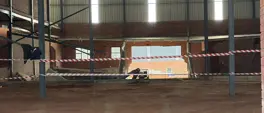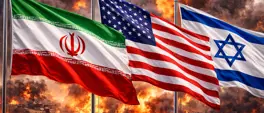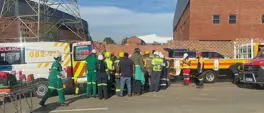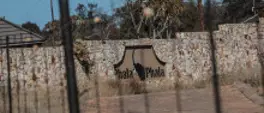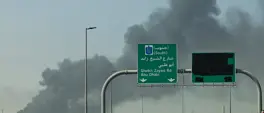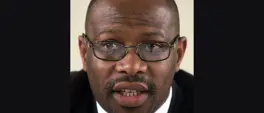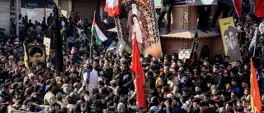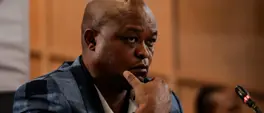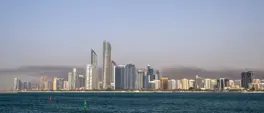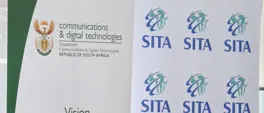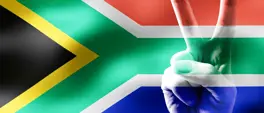MANDY WIENER: Madlanga Inquiry a reckoning that has been a long time coming
Mandy Wiener
19 September 2025 | 11:26For those who are not biblically inclined, a reckoning is a time of judgment, where past actions are weighed and accountability is required. It is the settlement of an account, writes Mandy Wiener.
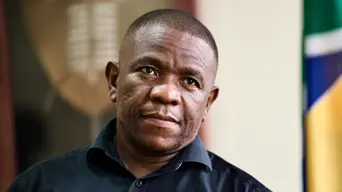
FILE: KwaZulu-Natal Police Commissioner Nhlanhla Mkhwanazi in his office at the provincial operations building in Durban. Picture: Katlego Jiyane/EWN
The Madlanga Inquiry into policing in South Africa has been a long time coming. Since the early 2000s, the leadership of the country’s law enforcement agencies have enjoyed a cosy relationship with wealthy businessmen who have been able to buy influence and protection.
It is a problem that has become exponentially worse over time, as the stakes are raised and boundaries blurred through corruption and a festering rot.
The Kebbles and Glenn Agliotti paved the way in what I like to refer to as early onset State Capture, by buying then National Police Commissioner Jackie Selebi with just over R100,000. In exchange, he showed them classified documents and gave them leverage.
Lt-Gen Khomotso Phahlane was also taken to trial alongside several high-ranking officers and businessmen for corruption relating to two contracts valued at approximately R54 million.
In my book Ministry of Crime, published in 2017, I wrote about how key underworld figures Radovan Krejcir and Nafiz Modack had allegedly brought senior police officials into their networks, keeping them on their payroll for protection.
For far too long, top echelons of policing have allowed themselves to become pawns, played by those with deep pockets and resources. The time has come for the account to be settled and past actions to be weighed up.
Lt-Gen Nhlanhla Mkhwanazi, in his first few days in the stand, has already mentioned the names of ‘businessmen’ (a Mzansi euphemism for mafia don) who had influence over senior cops. Expect him to put more meat on the bones of these allegations as time passes.
He described how Vusimuzi 'Cat' Matlala enjoyed unlawful privileges from law enforcement, such as using vehicles fitted with blue lights.
“He facilitated the registration of these vehicles as if they were municipal assets, funded by the Ekurhuleni municipality,” said Mkhwanazi.
Mkhwanazi is well aware of just how high the stakes of this reckoning are. His own personal safety is at risk. Many have noticed how he chooses his own seat at the commission, refuses to shake hands with anyone and only drinks from a water bottle he has brought with him.
His bravery and casting asa whistleblower have garnered a groundswell of public support. He also appears to be speaking on behalf of a collective of officers and not just himself. His submissions are detailed and are ostensibly based on numerous sources.
However, history tells us that the law enforcement agencies in the country are deeply riven by factionalism. It is not as simple as the good guys versus the bad guys, as much as the public would like it to be a binary war between villains and superheroes.
Already, forensic investigator Paul O’Sullivan has said that Mkhwanazi is ‘not the knight in shining armour he would have the media and the South African public believe he is’. O’Sullivan drove the corruption cases against both National Commissioners Selebi and Phahlane, and is described as a ‘cop hunter’, so his claims have some substance.
However, Mkhwanazi has brought a defamation case against O’Sullivan for R5 million. He argues that O’Sullivan made ‘wrongful and defamatory’ statements about him in numerous media interviews.
Mkhwanazi is thedog that caught the cartel bus. It is now up to him to deliver on his explosive claims.
Off the back of his press conference in July, an entire Commission has been set up to investigate his allegations, and now he is going to have to lay it all bare.
Watching him in his dark suit and striped tie in the dignified setting of the judicial inquiry this week, I got the sense that he has the backbone to see it through.
The commission will run in three phases.
In Phase One, it’s up to Mkhwanazi to provide the evidence to back up his claims. Phase Two will feature rebuttals from those implicated, and Phase Three will be an opportunity for Mkhwanazi to respond.
Don’t be under any illusion that this business will be over in a hurry. It is going to be long and difficult.
During the course of the inquiry, we are going to see trust in the SAPS further eroded as guts are spilt. But ultimately, the hope is that it will be cleaned up and the service will emerge with credibility.
This reckoning for law enforcement in South Africais long overdue. For decades, the SAPS, in particular, has been a haven for abuse and capture. This inquiry may not be a panacea for all its problems, but it is certainly a start.
Get the whole picture 💡
Take a look at the topic timeline for all related articles.
